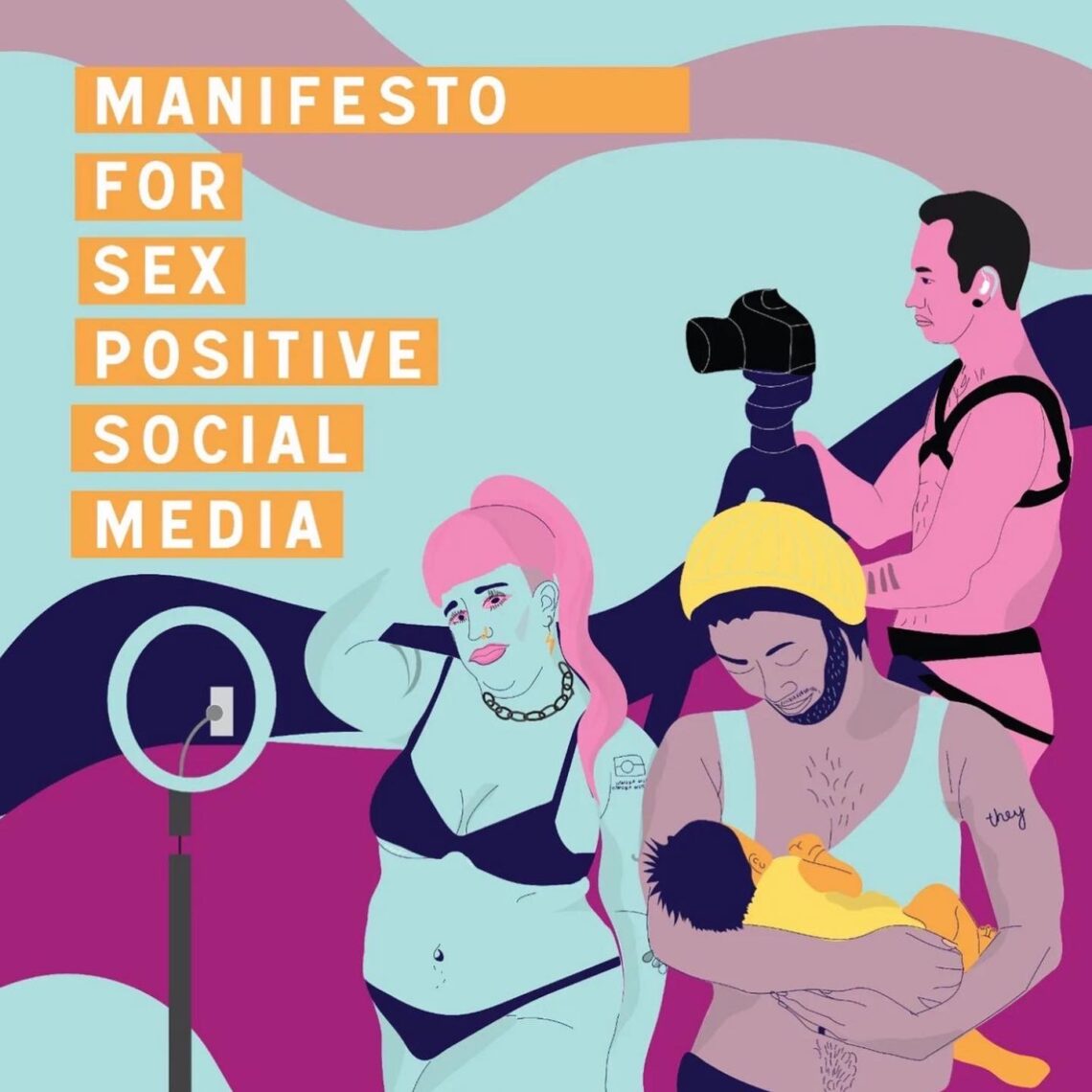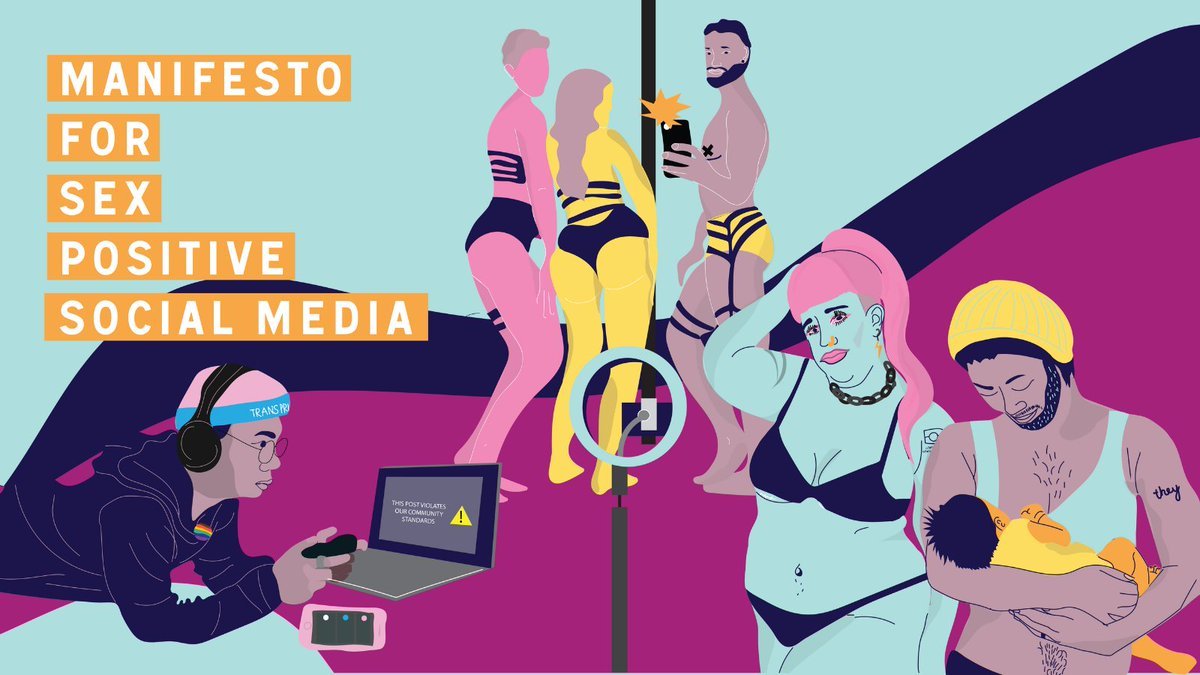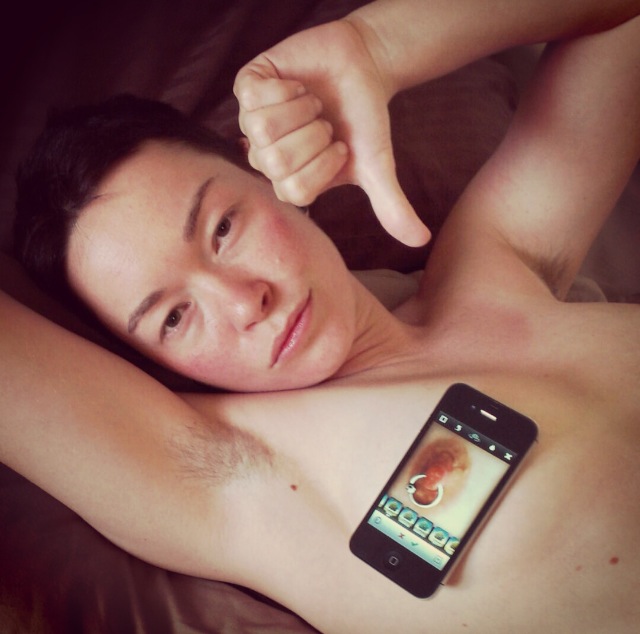
A Manifesto for Sex Positive Social Media
Social media platforms can and must do better when it comes to navigating human sexuality, consent, and representation.
If you’ve been following my online adventures, you might recall my own experiences with censorship and piracy. As a porn performer who is naked on the Internet, and as Marketing Director at Pink and White Productions who promotes sexual media like queer porn site CrashPadSeries.com and indie adult streaming platform PinkLabel.TV — and most recently, the San Francisco PornFilmFestival, I’ve had my share of pitfalls and frustrations when dealing with services for whom sexuality often appears as an afterthought. To most platforms, sex is viewed as a liability to be ignored or excluded. However that strategies is less than ideal, as prohibition neither prevents, nor protects. A blanketed approach to sexual censorship makes navigating sexuality online ineffective at best, and harmful at worse.
It doesn’t have to be this way. If we approach development with a sex-positive perspective, we can effectively redesign the way that sexual content, expression, and information is shared online.
Last year I had the honor to co-host a community lab on Alternative Frameworks for Sexual Content Moderation at RightsCon. Our outcome of the discussion is The Manifesto for Sex Positive Social Media, which lists seven demands for change! Check it out and sign on: SexPositiveSocialMedia.org
Our group’s stellar instigator, Dr. Zahra Stardust, lead the charge, as we gathered our ideas, values, and past works to create a manifesto as a resource that can be used to bring real and positive change for so many who are impacted by online censorship and moderation and user abuse. Here’s more about the project below, via the ARC Centre.

ARC Centre of Excellence for Automated Decision-Making and Society
Social media is taking on an increasingly central role in shaping and constraining cultural life and human sociality. Yet platforms currently make private, arbitrary, and unaccountable decisions about the kinds of sex and sexualities that are visible in online space.
Platforms have preemptively shut down spaces that have been safe havens for systemically marginalized communities and actively shadow-banned, demoted, de-monetized, suspended and de-platformed groups as diverse as sex workers, LGBTQ+ folk, people of color, sex educators, women, disabled people, and fat activists. While over-policing sexual content, platforms still lack a holistic response to addressing harassment, image-based abuse, malicious flagging, sexual racism, theft of sexual content, and the unethical scraping of sexual databases.
At the 2021 RightsCon Summit on Human Rights in the Digital Age, community organizations, advocates, and academic experts Dr. Zahra Stardust, Dr. Emily van der Nagel, Professor Katrin Tiidenberg, Jiz Lee, Em Coombes, and Associate Professor Mireille Miller-Young, PhD held a Community Lab on Alternative Frameworks for Sexual Content Moderation, hosted by Harvard University, Berkman Klein Center for Internet & Society | Centre for Internet and Society (CIS), India.
This group considered how social media platforms could better understand sexual content, responding to platform policies that restrict or prohibit consensual sexual communication, expression, and representation. Following further stakeholder consultation, the organizers developed a Manifesto for Sex Positive Social Media that sets out guiding principles that platforms, governments, policy-makers and other stakeholders ought to take into account in their design, moderation and regulation practices. It starts with the premise that platforms can learn from existing human rights principles and theoretical work on sexual justice, digital sexual citizenship, and sex-positive thinking.
Read and spread the word: SexPositiveSocialMedia.org


